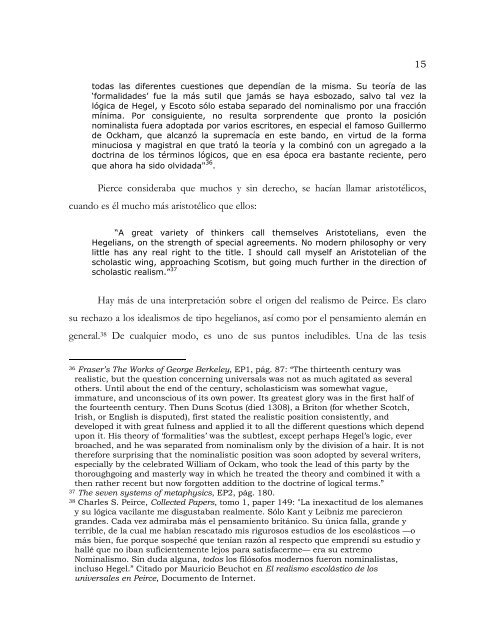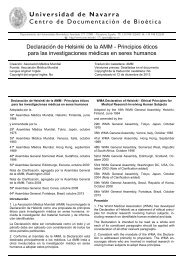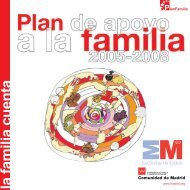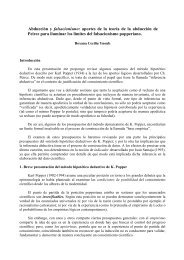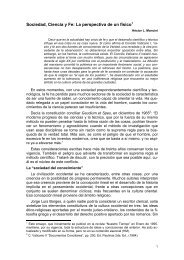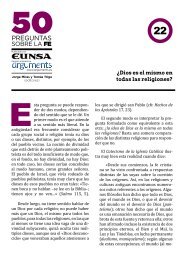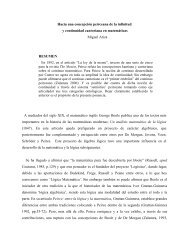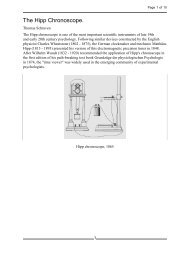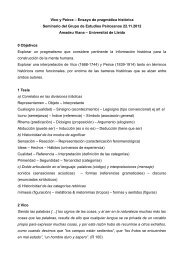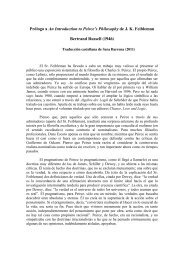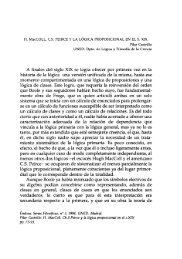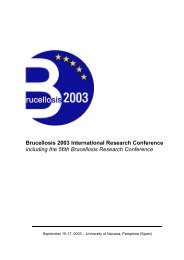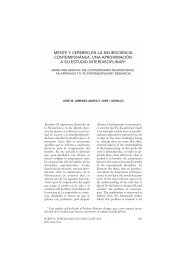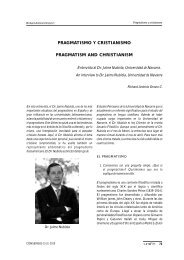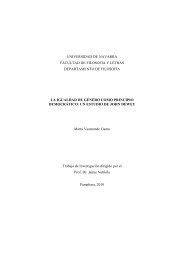Aportes filosóficos de Charles Sanders Peirce - Universidad de ...
Aportes filosóficos de Charles Sanders Peirce - Universidad de ...
Aportes filosóficos de Charles Sanders Peirce - Universidad de ...
You also want an ePaper? Increase the reach of your titles
YUMPU automatically turns print PDFs into web optimized ePapers that Google loves.
todas las diferentes cuestiones que <strong>de</strong>pendían <strong>de</strong> la misma. Su teoría <strong>de</strong> las<br />
‘formalida<strong>de</strong>s’ fue la más sutil que jamás se haya esbozado, salvo tal vez la<br />
lógica <strong>de</strong> Hegel, y Escoto sólo estaba separado <strong>de</strong>l nominalismo por una fracción<br />
mínima. Por consiguiente, no resulta sorpren<strong>de</strong>nte que pronto la posición<br />
nominalista fuera adoptada por varios escritores, en especial el famoso Guillermo<br />
<strong>de</strong> Ockham, que alcanzó la supremacía en este bando, en virtud <strong>de</strong> la forma<br />
minuciosa y magistral en que trató la teoría y la combinó con un agregado a la<br />
doctrina <strong>de</strong> los términos lógicos, que en esa época era bastante reciente, pero<br />
que ahora ha sido olvidada" 36 .<br />
Pierce consi<strong>de</strong>raba que muchos y sin <strong>de</strong>recho, se hacían llamar aristotélicos,<br />
cuando es él mucho más aristotélico que ellos:<br />
15<br />
“A great variety of thinkers call themselves Aristotelians, even the<br />
Hegelians, on the strength of special agreements. No mo<strong>de</strong>rn philosophy or very<br />
little has any real right to the title. I should call myself an Aristotelian of the<br />
scholastic wing, approaching Scotism, but going much further in the direction of<br />
scholastic realism.” 37<br />
Hay más <strong>de</strong> una interpretación sobre el origen <strong>de</strong>l realismo <strong>de</strong> <strong>Peirce</strong>. Es claro<br />
su rechazo a los i<strong>de</strong>alismos <strong>de</strong> tipo hegelianos, así como por el pensamiento alemán en<br />
general. 38 De cualquier modo, es uno <strong>de</strong> sus puntos ineludibles. Una <strong>de</strong> las tesis<br />
36 Fraser’s The Works of George Berkeley, EP1, pág. 87: “The thirteenth century was<br />
realistic, but the question concerning universals was not as much agitated as several<br />
others. Until about the end of the century, scholasticism was somewhat vague,<br />
immature, and unconscious of its own power. Its greatest glory was in the first half of<br />
the fourteenth century. Then Duns Scotus (died 1308), a Briton (for whether Scotch,<br />
Irish, or English is disputed), first stated the realistic position consistently, and<br />
<strong>de</strong>veloped it with great fulness and applied it to all the different questions which <strong>de</strong>pend<br />
upon it. His theory of ‘formalities’ was the subtlest, except perhaps Hegel’s logic, ever<br />
broached, and he was separated from nominalism only by the division of a hair. It is not<br />
therefore surprising that the nominalistic position was soon adopted by several writers,<br />
especially by the celebrated William of Ockam, who took the lead of this party by the<br />
thoroughgoing and masterly way in which he treated the theory and combined it with a<br />
then rather recent but now forgotten addition to the doctrine of logical terms.”<br />
37 The seven systems of metaphysics, EP2, pág. 180.<br />
38 <strong>Charles</strong> S. <strong>Peirce</strong>, Collected Papers, tomo 1, paper 149: "La inexactitud <strong>de</strong> los alemanes<br />
y su lógica vacilante me disgustaban realmente. Sólo Kant y Leibniz me parecieron<br />
gran<strong>de</strong>s. Cada vez admiraba más el pensamiento británico. Su única falla, gran<strong>de</strong> y<br />
terrible, <strong>de</strong> la cual me habían rescatado mis rigurosos estudios <strong>de</strong> los escolásticos —o<br />
más bien, fue porque sospeché que tenían razón al respecto que emprendí su estudio y<br />
hallé que no iban suficientemente lejos para satisfacerme— era su extremo<br />
Nominalismo. Sin duda alguna, todos los filósofos mo<strong>de</strong>rnos fueron nominalistas,<br />
incluso Hegel.” Citado por Mauricio Beuchot en El realismo escolástico <strong>de</strong> los<br />
universales en <strong>Peirce</strong>, Documento <strong>de</strong> Internet.


